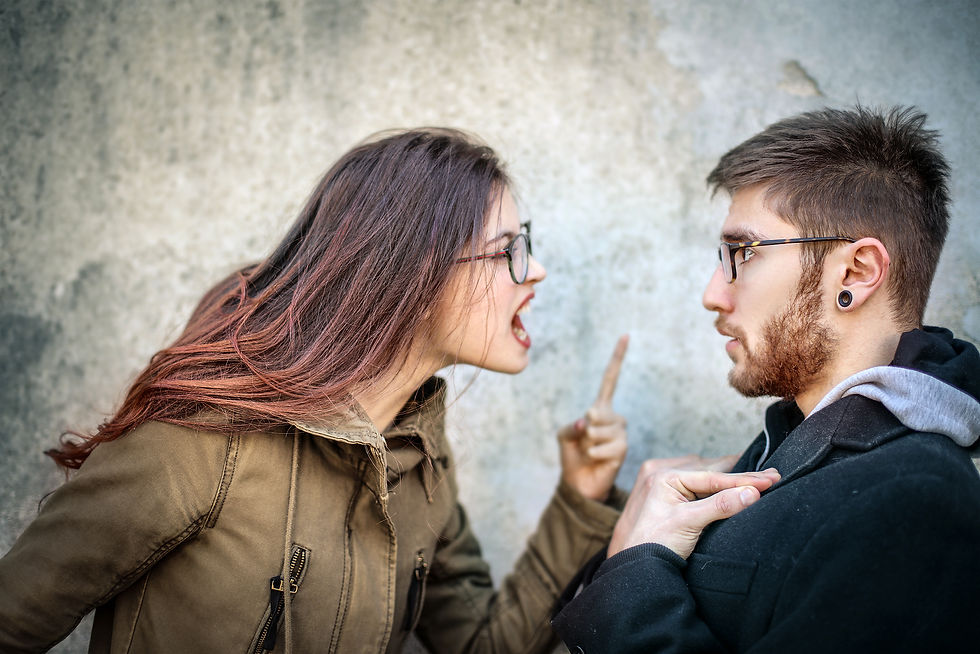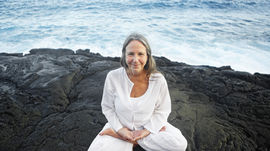Toxic Relationships
- Dr. Liesel Hunter, Psy.D.
- Apr 1, 2017
- 5 min read
Are you in a toxic relationship?
A couple of weeks ago, I sat with a client who was expressing her heartbreak and resentment over her adult, alcoholic son. He was planning to move in with them after his divorce. Indefinitely, without sobriety or paying rent I might add. This is a woman who is a life-long caregiver who came to me because of her declining health and depression. She was unable to set appropriate boundaries with her son and was sacrificing her health and well-being in the process. While hopefully none of us get this far, we can all relate to feeling trapped in toxic relationships. In the name of kindness, love and social expectations, we continue to overfunction and over-give without return. This situation is the breeding ground for the development or exacerbation of chronic conditions like depression, anxiety, chronic illness.
Sometimes these relationships are friends with whom we feel obligated to spend time. They are having a hard time and we want to help or we’ve known them for a long time and are afraid to say, “no”. Sometimes they are family members and the cultural expectation that “blood is thicker than water” still holds. Family or friends, these toxic relationships are stealing time and energy from your path to greater health and well-being.
The problem is that these people, bless their souls, are single-minded about getting whatever you are offering them. Despite what they may say, they do not care about supporting you in your efforts to feel better. They may even be very nice people, but unconsciously they just want to keep getting whatever is you are giving them, your health be damned. Unfortunately, taking better care of yourself usually gets in the way of their unmet needs.
This may sound harsh but I cannot stress enough how much toxic friends and family can impact your health. Being in a difficult relationship causes stress and depletion of internal resources. Stress and depletion equal inflammation and immune response deficiencies. Depression and anxiety can follow. At the very least, your time and energy should be focused on your self-care first not other’s.
If you are unsure if there are toxic people in your life, answer the questions below. Write them in your journal so you can remember them in weaker moments.
Do you feel drained or exhausted after spending time with anyone in your life? Who?
Do you feel bad about yourself after being with or talking to this person?
Do you question your behavior or words after talking with this person?
Do you feel confused and a little bit crazy after being with them?
Are the things you care about and find important ignored or belittled by them?
Does this person always draw the conversation to themselves?
If you answer, “yes”, to some or all of the them, you, my friend, are knee deep in the toxic wasteland of co-dependency. Don’t freak out. “ Awareness is curative”, said Fritz Pearls. Now that you know, you can change the patterns. Although your “nice self” is not going like it and neither is your toxic friend. If you have come to HC, you want to get better and we are here to help. Continue reading the next installation of this article, “Toxic Relationships, Part 2. Setting boundaries and Letting Go”.

Part 2:
If you’ve read this far, you have realized that you may be in a toxic relationship with someone. Ouch! I know that changing these relationships is anxiety-provoking and heartbreaking work. As always, be kind to yourself. You are being asked to change usually life-long patterns of connection. It takes time. My advice is to start with the more distant relationships. A person who is not part of your daily life. Take baby steps. Healthy relationships are not built in a day, they are an ongoing process of evolution towards good.
First, bring this not-so-close friend or family member to mind. Ask yourself, if you could be truthful with them about your needs and the problems in the relationship? If yes, then you may be able to have a mature conversation about evolving your relationship towards more balance. The strongest relationships I know are ones that have worked through some conflict. If your answer is “no” or you’re not sure, follow the steps below and it will become clear.
Next, practice saying “no”. Yes, I mean right now. “NOOOOOO!” from your belly like a 2 year-old throwing a tantrum in the grocery store. If you are like many people I know, just getting “no” out of your mouth is a big step. Once it flows of the tip of your tongue, try it out when asked to go do something with or for this person. If that is difficult, start by saying “no” to benign things like “no thank you, I don’t want cream in my coffee”. I advise my clients to use “I” statements, like “I am really focusing on my health now, slowing down and not scheduling too many things. Let’s put this off now until I feel much more resourced and can listen to you better.”
Control the time and setting. Only spend small amounts of time with them and always be the one to choose the setting. Always, I mean always, drive yourself. Meet somewhere other than your house or schedule something just after so you have a good excuse to leave. If you don’t, I give you permission to tell white lies in the name of your health. Here, take note of their reaction. Angry? Hurt? Dismissive? A healthy person will take your limit setting in stride.
Family is the hardest. The holidays are coming up fast and dysfunctional family systems run amuck. If you have a choice, do not host the toxic ones in your home. EVER!. If you must, they can only stay a couple of days. My husband and I have a four-day limit for all relatives good or bad. Your home is your sanctuary, keep it clean of bad energy.
As you begin setting boundaries, notice how you feel. Guilty? Relieved? Empowered? Stressed? Afraid of repercussions? Again, be kind to yourself. This is not easy. It can take years.
Finally, if this person is not taking, “no” for an answer or worse is downright mean when you set limits, it may be time to say goodbye. Letting go is terribly hard but your health and well-being comes first. I beg you not to compromise it by remaining in unhealthy situations. If you find that you just can’t manage it because of your own relational patterns or because this person is especially unhealthy and controlling, get help. Recruit a good friend for their support and seek out a therapist whose guidance you can trust. You can do this. I believe in you and your body/mind will thank you.















Comments